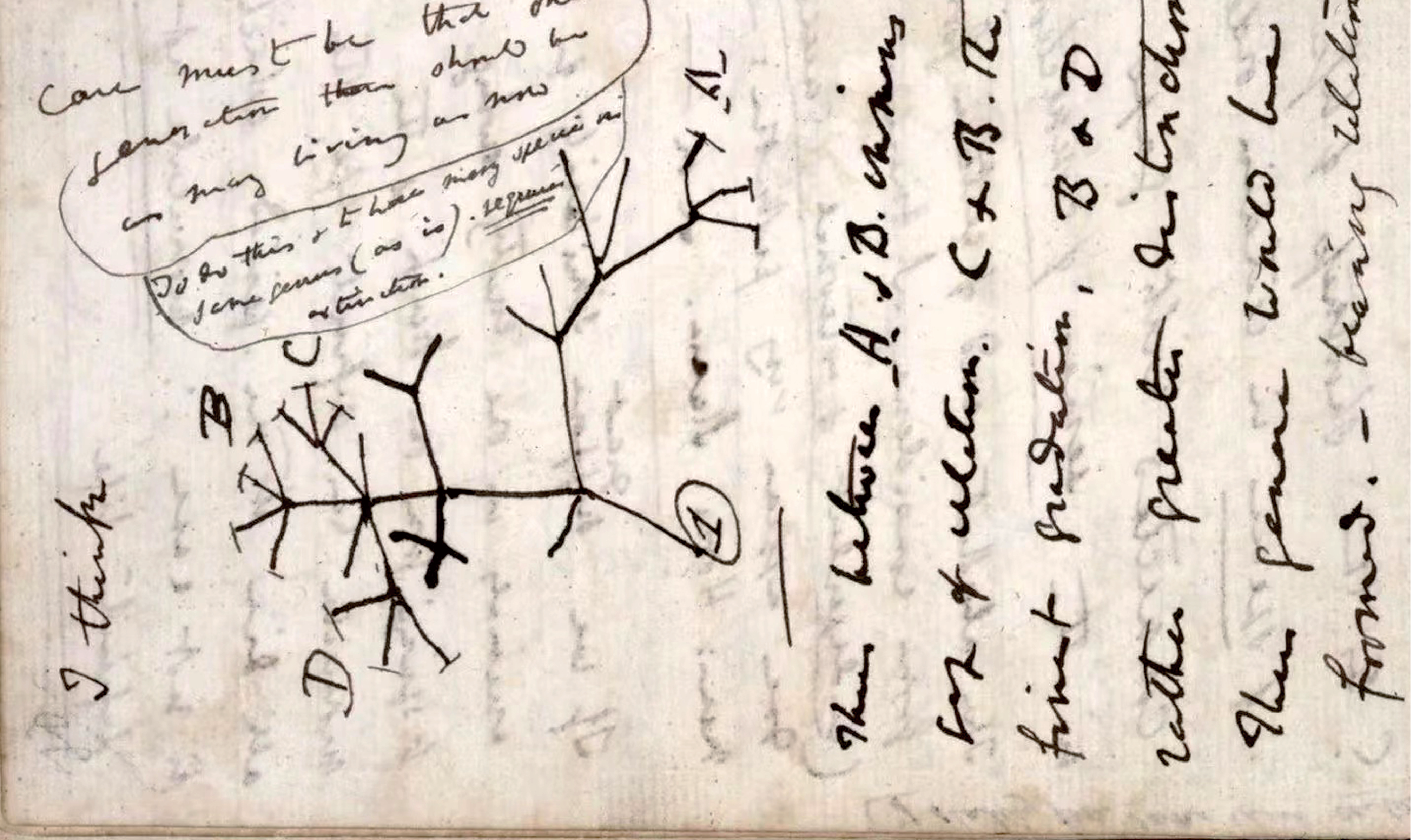One
Seize the trend
Great Wall Motors
taking the throne of Chinese SUV by pioneering and leading the trend
“Good decision makers know that decision making has its own process and its own clearly defined elements and steps. Every decision is risky: it is a commitment of present resources to an uncertain and unknown future. Making good decisions is a crucial skill at every level.”
⸺Peter Drucker
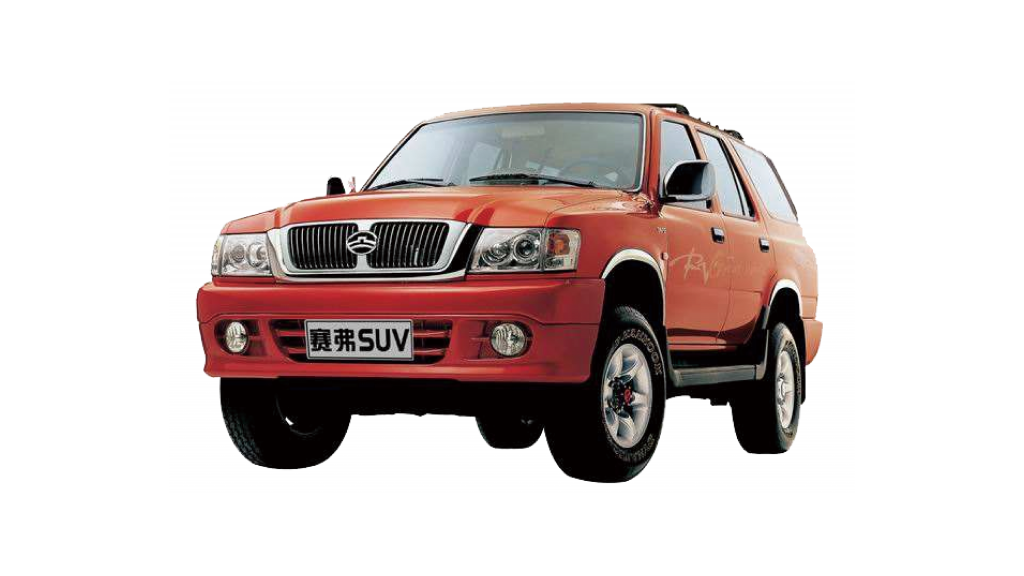
Illustration 1.1 Great Wall Motors Launching China’s First Economy SUV – Saifu SUV
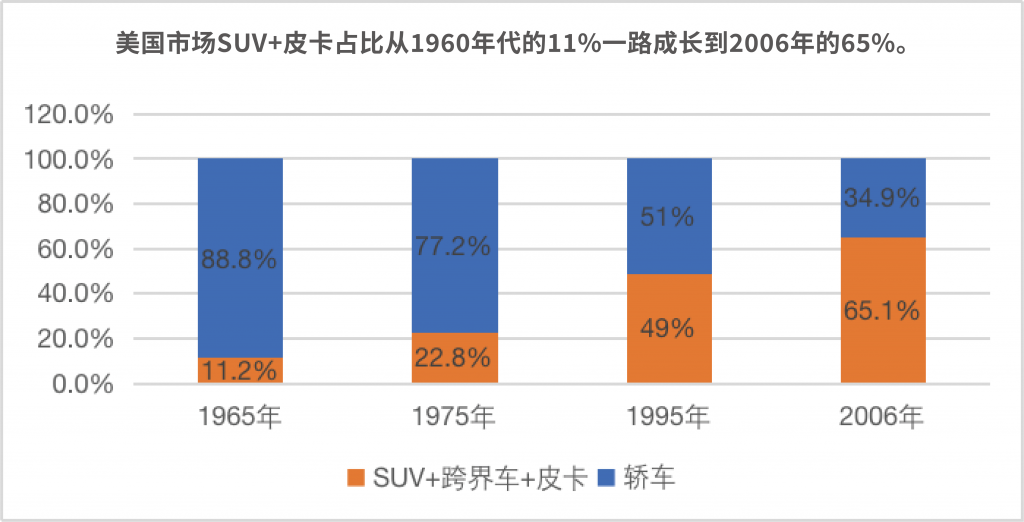
Illustration 1.2 The Development of SUV in the United States
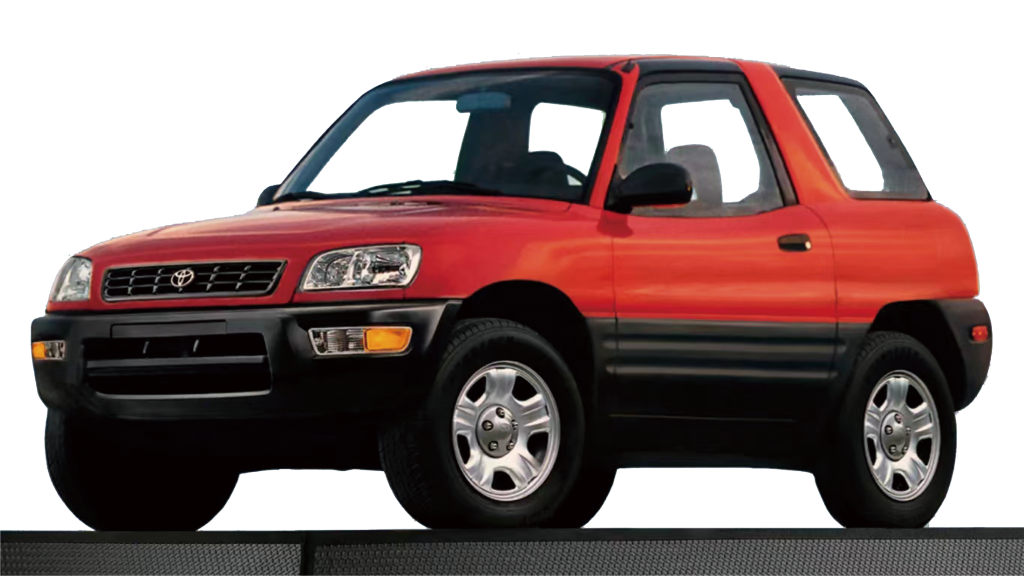
Illustration 1.3 In 1989 Toyota Introduced its Compact SUV in the United States – Toyota RAV4
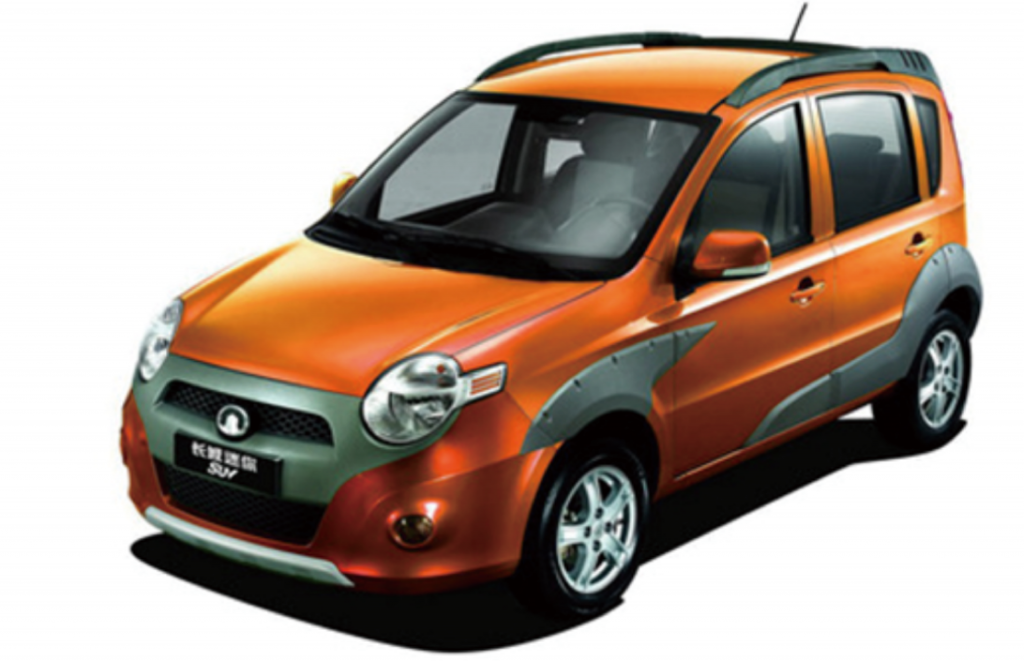
Illustration 1.4 Haval M1 launched in 2009

Illustration 1.5 Haval M2 launched in 2010
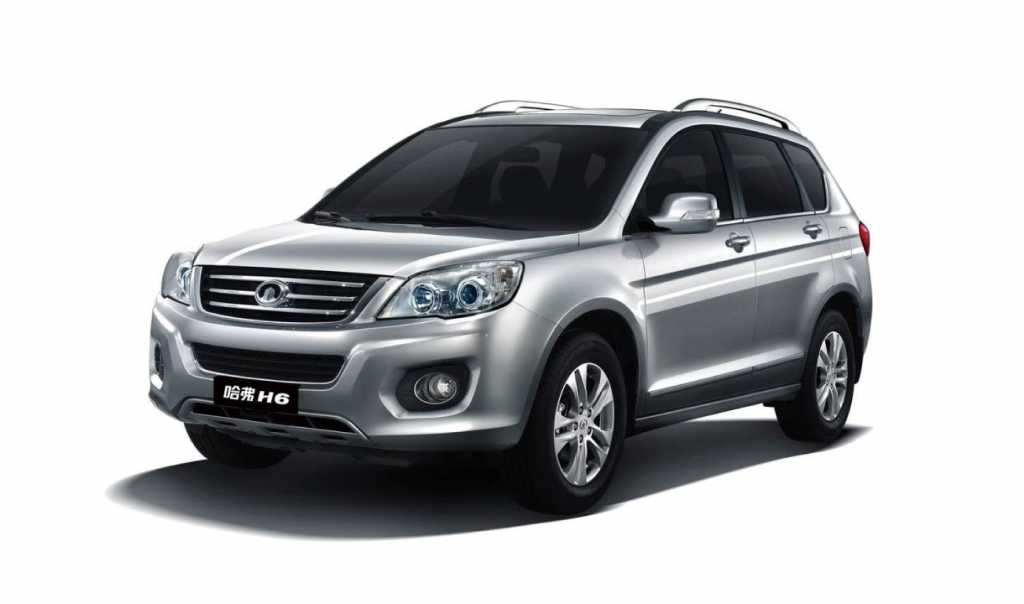
Illustration 1.6 Haval H6 launched in 2011
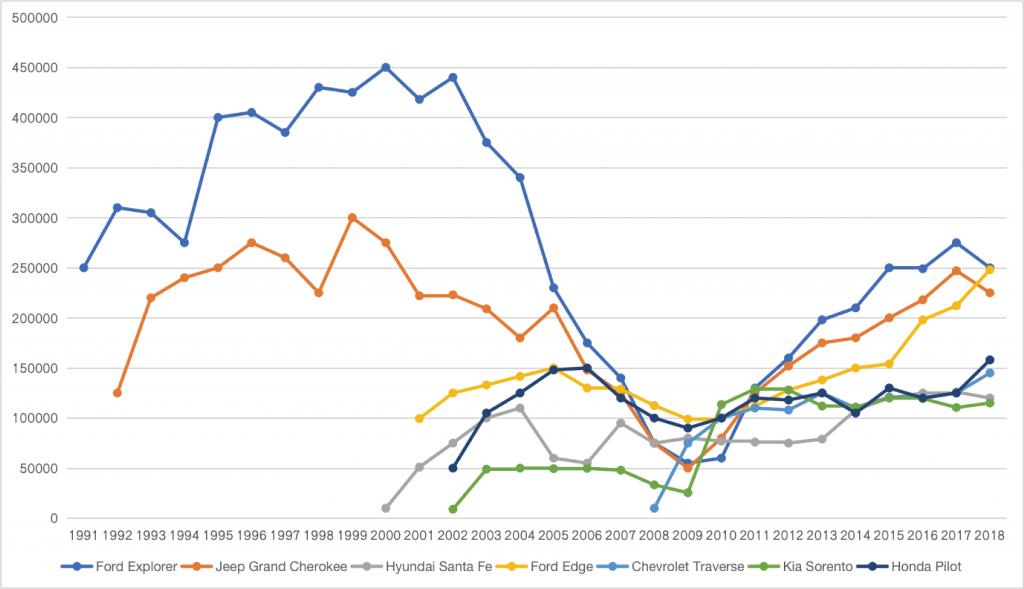
Illustration 1.7 The evolution of mid-size and full-size SUV in the United States
Source: Automobile Industry Analysis Report in the United States

Illustration 1.8 Tank launched in December 2020
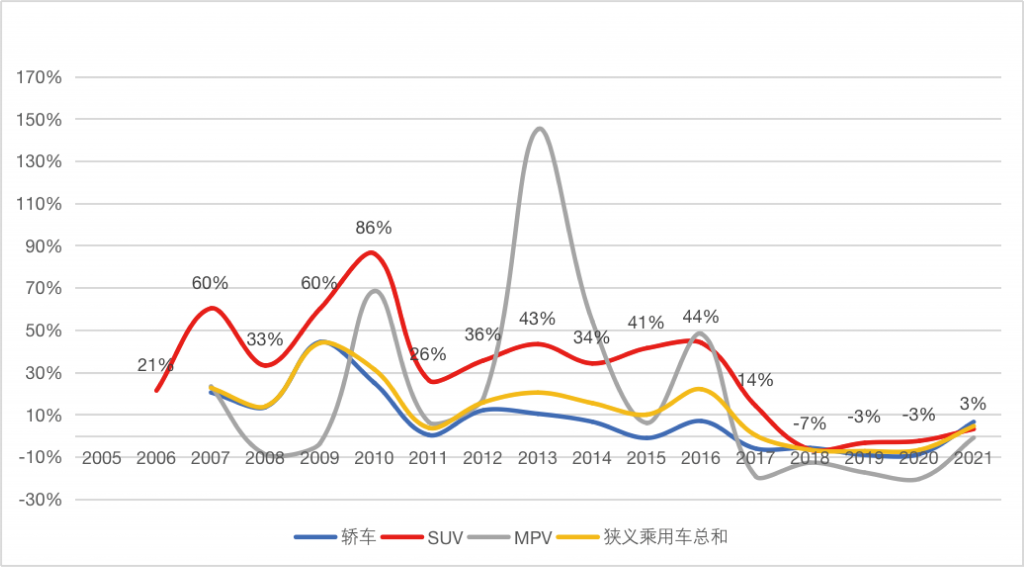
Illustration 1.9 Category Evolution of Automobile Industry in China
Source: China Association of Automobile Manufacturers
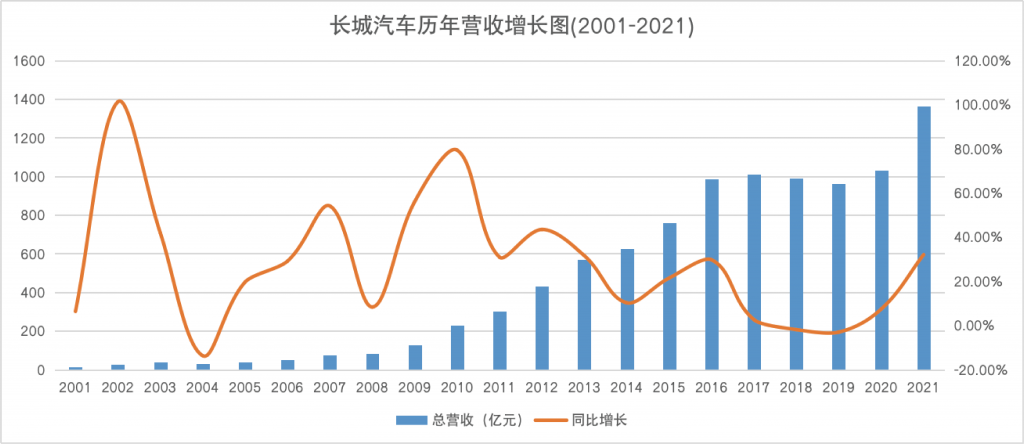
Illustration 1.10 The Revenue Growth of Great Wall Motors
Source: Annual Reports of Great Wall Motors




